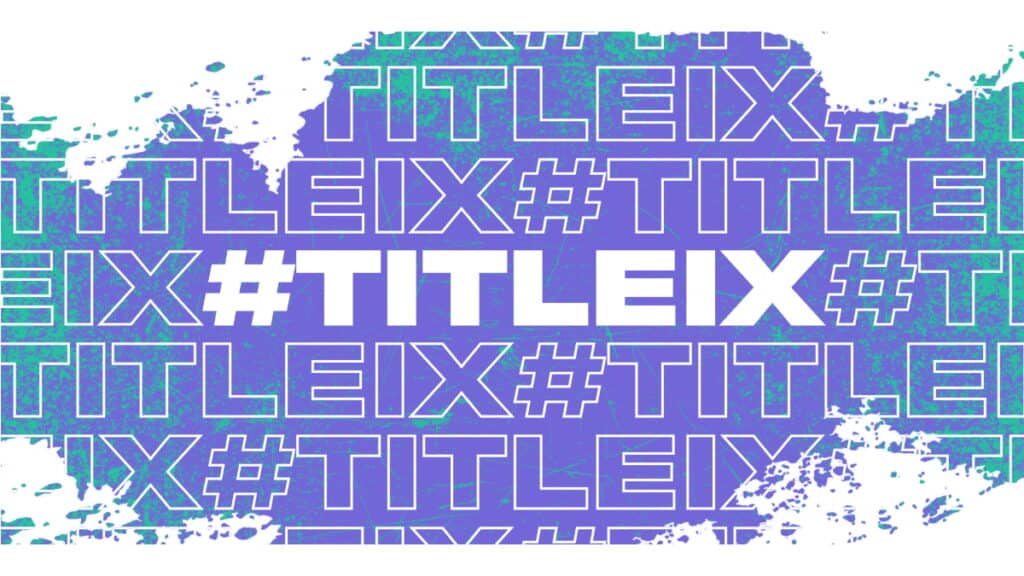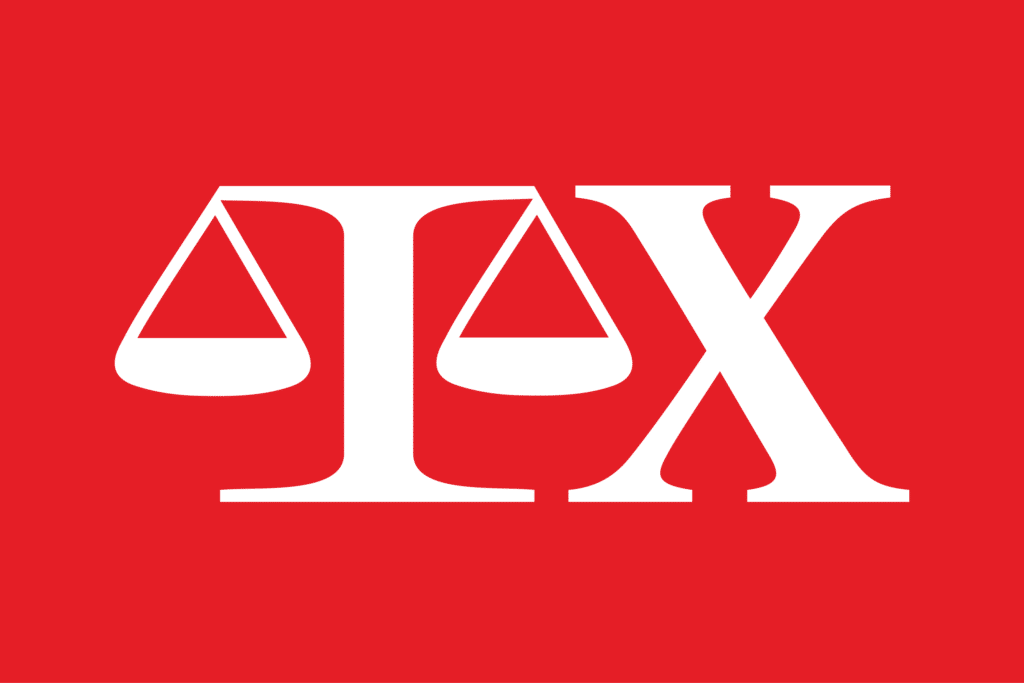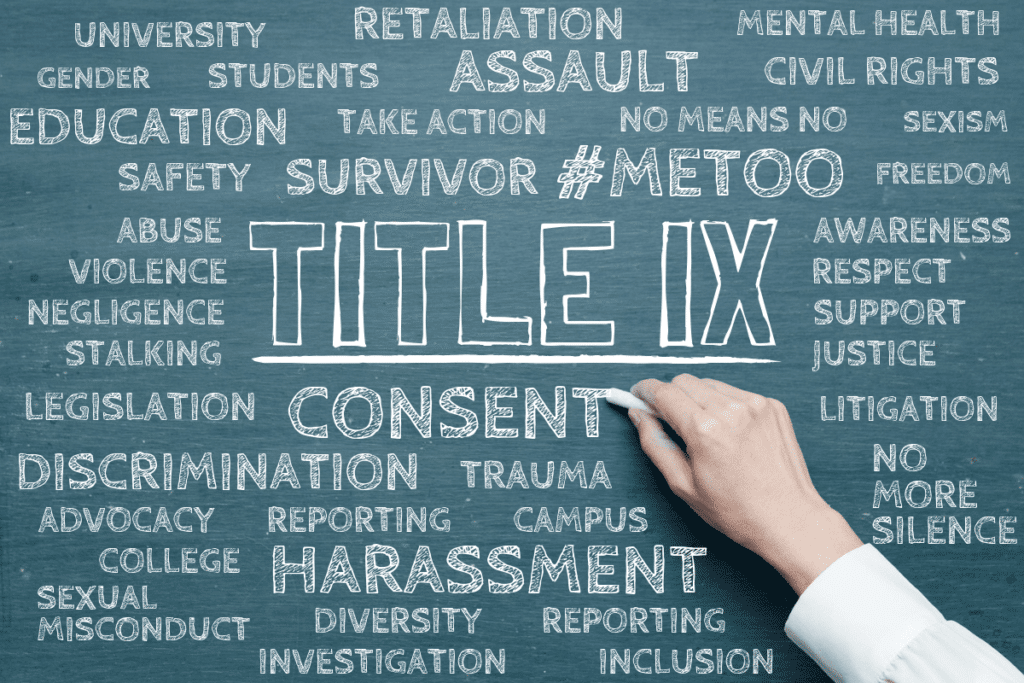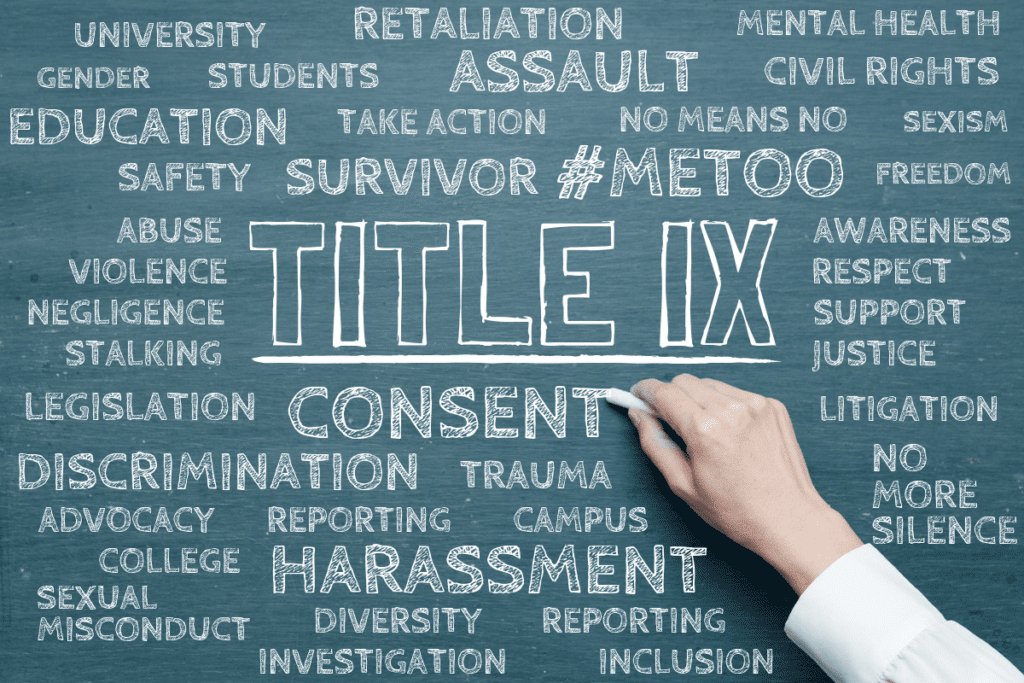Title IX provides protection against many forms of harm, sexual harassment, discrimination, and sexual assault. Victims of unlawful sex discrimination, harassment, or retaliation can file a civil action against the institution in question.
If you study or work within the US educational system and have been the subject of such discrimination or harassment, contact the experienced sexual harassment lawyers at The Maine Criminal Defense Group for an initial consultation.
Call 207-571-8146 or contact us online to schedule a consult with one of our highly skilled criminal defense & OUI lawyers, serving Southern Maine, today.
Table of Contents
What is Title IX Sexual Harassment?
Educational institutions that receive federal funds of any kind must abide by the provisions made in Title IX of the Education Amendments of 1972 (20 U.S.C. §§ 1681 et seq).
This prohibits discrimination against individuals on the basis of sex in most of the following types of establishments in the US:
- Colleges
- Universities
- Local school districts
- For-profit and charter schools
It also applies to federally funded educational programs at institutions such as:
- Museums
- Libraries
- Prisons
The main point outlining the purpose of the legislation states the following:
“No person in the United States shall, on the basis of sex, be excluded from participation in, be denied the benefits of, or be subjected to discrimination under any education program receiving Federal financial assistance…”
Protection against gender discrimination, sexual harassment, and unlawful retaliation are all covered under the law – whether against males, females or transgender individuals.
Does Title IX cover all schools in the US?
The vast majority of schools in the United States, though not all of them, are covered by the Title IX legislation.
The legislation applies to every educational institution that receives federal funds, including both public and private universities. Private institutions often receive federal financial-aid programs or have their students take out federal loans.
Does Title IX apply to only teachers and educators?
Sexual harassment committed by teachers and educators is certainly covered by Title IX.
However, it applies to sexual harassment of a student committed by not just teacher or educators, but any school employee, another student, or a non-employee third party. For example, a guest speaker or a member of a visiting sports team can be held accountable for their actions under Title IX.
Students who are parents are also protected from discrimination under Title IX. For instance, if mother-daughter services or activities are provided by a school, then comparable father-son opportunities should also be offered.
Call 207-571-8146 or contact us online to schedule a consult with one of our highly skilled criminal defense & OUI lawyers, serving Southern Maine, today.
How do you know if your school complies with Title IX?
To comply with Title IX, your school must:
- Have an effective procedure in place to handle complaints of sex discrimination, including sexual harassment, which allows a prompt and equitable resolution of complaints.
- Distribute details of its policy against sex discrimination and the complaints’ procedure to students and faculty.
- Have a designated Title IX coordinator.
These are the basic requirements, but there are other responsibilities of educational institutions under Title IX.
Typical Title IX cases in the US
While Title IX is most commonly associated with discrimination in sports and athletics, there are many other types of cases.
Typically, Title IX cases involve a student, teacher, or coach filing legal action against the institution due to harassment or discrimination.
Title IX cases may involve the following types of action:
- Sexual assault or harassment
- Bullying
- Pregnancy discrimination
- Employment discrimination
- The availability of opportunities in certain sectors like science, technology, engineering, etc.
- Unfair funding policies for athletic programs
- Inequitable disciplinary policies based on gender
Are you protected by Title IX even while off-campus?
The provisions within Title IX protect you even if you are off the grounds of the school, college, or university.
They apply to sexual harassment of a student occurring in an “education program or activity”. This relates to the school’s entire operations rather than just a particular location or facility.
It essentially covers every academic, educational, extra-curricular, athletic, or other program run by an educational establishment. It includes activities that occur within school facilities, on school transport, at a training program sponsored by the school, or at any other location.
Even if you have been sexually harassed off school grounds and outside the school’s education program, you may still be able to file a claim against the perpetrator if he or she was a student.
Does Title IX address sexual violence?
Title IX is most commonly associated with acts of sexual discrimination.
However, there are also provisions in the act to protect victims of sexual violence or sexual harassment. Colleges and universities must take measures to prevent sexual assault (as well as discrimination), and have measures in place to take meaningful action if allegations of this nature are made.
The Department of Education has issued a set of guidelines concerning expectations for educational institutions when responding to allegations of sexual violence or harassment. There are three basic requirements:
- Hire a coordinator to investigate allegations of sexual assault when they occur,
- Develop a written policy detailing the investigation process for claims of sexual violence or harassment, and
- Provide reasonable accommodations to alleged victims of sexual assault, including housing changes, class schedule changes, and counseling.
While Title IX claims are heard in the civil court, this does not preclude the ability to file criminal charges against perpetrators of sex crimes.
What can you do about Title IX retaliation from your school?
There are provisions within Title IX to protect anyone who makes a complaint against a school or asserts their rights under the act from being retaliated against.
In other words, your school cannot penalize you if you report a violation of Title IX or make a complaint about gender-based discrimination.
Retaliatory treatment against students often includes:
- Awarding of poor grades
- Not picking a student for an athletic team
- Reduction of playing time or demotion to a less senior position on an athletic team
- Harassment or other mistreatment in the classroom or elsewhere
- Suspension or expulsion from a program
Teachers and other educational staff are also protected. For instance, if a teacher reports unequal treatment of male and female students in athletic programs, that teacher cannot be retaliated against by the school, college, or university.
This protection from retaliation encourages people to step forward if they witness a violation of Title IX or are themselves a victim.
Does Title IX protect sexual orientation and gender identity?
One of the key provisions to Title IX made by President Obama was to protect those involved in education against discrimination based on sexual orientation, gender identity, and transgender status.
Discrimination against LGBT or gender-nonconforming students is prohibited, and has been recognized by federal courts and agencies.
Employers in the education field must take measures to address potential discrimination not only against LGBT or gender-nonconforming students, but also for staff members and throughout hiring procedures.
In particular, schools must respond to and prevent bullying, harassment, and discrimination of any kind based on sex.
Call 207-571-8146 or contact us online to schedule a consult with one of our highly skilled criminal defense & OUI lawyers, serving Southern Maine, today.
Blog Posts

When most people think of “Title IX” they tend to focus on the role on Title IX in preventing sexual or gender-based discrimination on college and university campuses. Title IX[...]

When people refer to “Title IX,” they are referring to the provisions of Title IX within the Education Amendments of 1972 (20 U.S.C. §§ 1681 et seq.). The purpose of[...]

Being accused of sexual misconduct in an educational environment in Maine can have serious ramifications for your future. As such, any accusation must be treated seriously. Even if you are[...]

For a law passed in 1972, Title IX has been in the news a lot in recent years. As sexual assault and other sex crimes have gained more attention in[...]

Maine’s schools have a duty not only to educate our youth, but to provide a safe environment for them to study and learn in. All children are entitled to certain[...]

A slew of allegations, including claims of domestic violence assault, has become even more complex because they happened in college, where federal laws provide for an independent system to decide[...]


